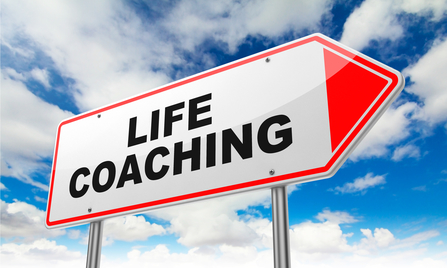
“I Don’t Need Therapy” – Why Life Coaching May Be Best For You
Take a moment to envision your perfect life. If every possible achievement was achieved, and you lived the life you’ve always dreamed, what would it look like? How would your career, your health, your relationships, your finances, your attitude, your family, your social life change?
This is what life coaching does. It helps to define where you are today, where you want to be, and most importantly, how to get you there.
Life Coaching as a profession is fairly new. It became a popular beginning in the early 1970’s when Timothy Gallwey published a book titled The Inner Game of Tennis, which was the first inspiration for drawing off of a sports coach to tackle the “inner opponents” inside all of us. Since then, Life Coaching has evolved much in the same way that counseling and the human services field has evolved. The life coaching community is constantly honing in on the ideals, guidelines, and best practices of good life coaches.
But what is life coaching anyway? I find it useful to explain that life coaching is a cousin to counseling. It is utilized in a very similar format: sessions are generally an hour long, there is a client, a coach, and a session filled with self-disclosure and problem solving.
A life coach has some significant differences from counseling, however. For example, counseling is a type of therapy, often called talk-therapy. It is designed to assist clients in understanding and overcoming problems. One might seek out a counselor or therapist to cope with depression, anxiety, martial problems, or the grieving process after the loss of a loved one. In many ways, counseling is problem-focused.
Life coaching, on the other hand, is not a form of therapy, although it can be therapeutic. It is not designed to understand or treat a mental illness such as depression or anxiety. It is not problem-focused. Instead, life coaching is future-focused. Where are you now, where do you want to be, and how do you get there?
The best part about life coaching is that it is for everyone. While counseling is extremely beneficial and I advocate for everyone to speak with a counselor on a regular basis, I recognize that there is a stigma associated with counseling. Society looks at counseling and says, “I’m not broken, I don’t need therapy.” Life coaching is not a treatment and does not presume that you are broken, injured, or struggling in any way. It is completely client-focused, meaning we talk about what you want to talk about. We work on what you want to work on. We make plans, but you are in charge, and you can deviate from those plans at any time. If there is a topic you don’t want to discuss, your life coach will not force it out of you.
Perhaps you are still skeptical. How do you actually know if life coaching is for you? Here are a couple of questions you can ask yourself to find out:
1. Do I feel stuck in my current ways, stuck in a rut, or find boredom in doing the same routine day in and day out?
2. When was the last time I was genuinely excited about something happening in my life?
3. Is there a recurrent problem in my life that I can’t seem to get a handle on?
4. Do I need someone who I can vent to, talk to, bounce ideas off of, or get advice from without fear of judgement, bias, “sugar coating”, or condemnation?
5. Is there a dream that I want to attain but don’t know where to start?
6. Do I need someone who will keep me accountable for my decisions?
Many of you will find that you can relate to some of these questions, because these are things that nearly every person grapples with at one point or another. Life coaching is designed to streamline the process of identifying and overcoming these common obstacles.
Life Coaching is a great investment of time for anyone who wishes to gain new measures of control, self-confidence, and success. If you are curious about life coaching, I encourage you to connect with me to try out your first session completely free.
Alexa Moody
Certified Virtual Life Coach
Counseling on Demand
About the Author: Alexa Moody is a certified virtual life coach for Counseling on Demand. From an early age Alexa devoted her career to mental health, earning her degree in case management, mental health first aid certification, QPR instructor certification, life coaching certification, and starting a 501©3 nonprofit, all by age 24. She is a strong example of the potential in all of us despite age, gender, monetary, or educational disadvantages.